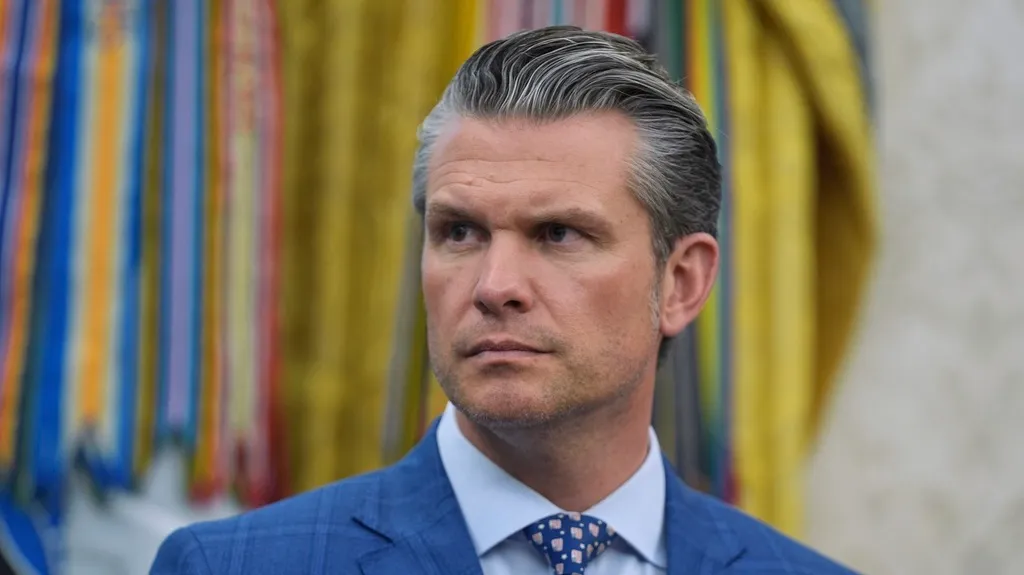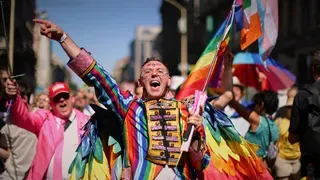December 29, 2012
Theater-Based, Trauma-Informed HIV/AIDS Care Via The Medea Project
Karin McKie READ TIME: 9 MIN.
"I wanted to help him," said Austrian immigrant Marlene, age 36. "So I started a relationship. He was a kid, in and out of prison, and I felt sorry for him." Three weeks later, she thought she had mono. Marlene finally went to get a regular gynecological check-up, where they offered her an HIV test. She thought, "Why would I need that? I don't have one-night stands," but felt that it was her "duty" to get tested.
On July 1, 2009, Planned Parenthood called her at work, where she's a fundraising manager. "We need you to come in. We can't talk over the phone," they said, but she knew she was going find out she was positive. Marlene's heart sank. She sat, shivering, and pondered two thoughts.
"My parents just lost my older brother, so now they'll never be grandparents," and "My life is over."
Marlene has lived in the U.S. for nine years, first working as an au pair in New York City. She didn't speak English very well, but thought that, "this country has everything." She visited San Francisco, and felt that, "if I'm lucky enough to come back to America, I'll live there." She got her wish, started a student job, and then worked her way up to her current position.
What little she knew about AIDS she learned at the end of the 1980s, during biology class in her hometown, a farming community south of Salzburg.
"I didn't use a condom with that guy, which was stupid," Marlene said. "When I contacted him, first he said he got HIV from me. But then he admitted he had lied to me. He knew his status and never said anything."
After the diagnosis, Planned Parenthood referred her to the University of California, San Francisco, Medical Center Women's HIV Program, right away. The first time Marlene met nurse practitioner Susan, "she hugged me and said 'This is not a death sentence.' She knew what I needed to hear."
The program also offered Marlene anti-depressants to deal with processing her diagnosis. "No, I'm Austrian!" she said. "We don't do that!" But she still needed moral and emotional support. UCSF recommended the Medea Project, a theater group where women can express their feelings. "I had no idea what to expect," said Marlene. "But it sounded right."
Out of Pain, a Theatrical Outlet for HIV-Positive Women
A quarter century ago, theater practitioner Rhodessa Jones, sister of acclaimed HIV-positive dancer and choreographer Bill T. Jones, was invited to teach aerobics at the San Francisco County Jail. She asked her students, "How many of you babies have babies of your own?'
One of the incarcerated women, a Berkeley graduate, responded that she had smothered her baby in a cocaine rage. She had "loved a man, but loved cocaine too," said Rhodessa. "She said that because her man no longer found her pretty or fresh or interesting, she killed her child."
"Why do we kill our children?" Rhodessa wondered. "Women look for love in all the wrong places, then we think, 'You're gonna mess with me?' Well, watch this." The woman's story inspired her to create the Medea Project, a theatrical outreach initiative to give women who have survived trauma a place to share what has happened to them.
Starting within the prison population, where there are many HIV-positive women -- because "abuse leads to infection," as Rhodessa said -- the group now includes all comers, all survivors of physical and mental ordeals and addiction. The women meet regularly to workshop their stories, and often begin by writing letters to someone they love, or hate, or to a childhood self, or to heaven, or the grave. Rhodessa then helps the storytellers shape these narratives into performance pieces, dances or raps, which are shared at various conferences and events.
"I'd never been with such a diverse group of women before," said Marlene. "Some had been incarcerated, some were social workers, some were theater people. Sometimes it was so loud!"
Marlene's physician, Dr. Edward Machtinger, UCSF's Women's HIV Program Director, met Rhodessa in 2008, and marveled that "this fabulous lioness and her project held such promise for HIV-positive women who had a history of trauma." He's been referring patients to the Medea Project ever since, and said the program is "a transformational experience that has changed my career."
Helping Women Overcome Stigma and Shame
Dr. Eddy, as he is affectionately called, runs one of the first comprehensive programs in the country for women and girls with HIV, and offers a diverse array of client services, including OBs, pharmacists, case and social workers and even breakfast. Yet despite these resources, sometimes his patients weren't doing very well, including being diagnosed late, not engaging in care or taking medications faithfully. They were also dying at high rates for a treatable disease.
"Our patients weren't dying from causes we would expect, like heart disease or cancer," said Dr. Eddy. "These women were overdosing, or committing suicide, or being murdered by their partners. We realized they were all united by a long history of trauma, and we weren't skilled to help them heal from that abuse, or to overcome the stigma and shame."
He noted that, "our other medical methodologies failed to capture the toll of real suffering from isolation and the non-disclosure of status. The Medea Project created a whole new system of 'trauma-informed care.'"
"It's social justice through storytelling," he said. "When we help women overcome past trauma, we prevent future trauma. And when women disclose past suffering as well as their infection status, they create community and can even become activists."
"Where I come from, I never learned how to talk about my feelings. I was ashamed, but the Medea Project helped me learn to say the truth," said Marlene.
In a Medea Project performance at San Francisco State University's World AIDS Day commemoration, nine women take the stage in the Cesar Chavez Student Center. The multiracial group is barefoot, wearing tribal face paint, silver leggings, and red or white T-shirts, which read, "HIV is Living with ME." Each woman steps forward to tell her own story, spoken word-style, while the others dance and gesture in the background, echoing certain phrases and creating a moving tableau.
Felicia says, "Being truthful is more therapeutic than Motrin, or aspirin, or crack."
Cassandra, a self-described "spy in the house of pain," tells of finding out about her infection. Her diagnosis was "a watershed; a rupture in time that divided my life into before, and after." She reminds the audience that, "if you're looking for a reason to find shame, you can always find one. But HIV infection is a health condition, not a crime."
An ad hoc Greek chorus chants, "Since I lived and did not die, I will be the face of HIV/AIDS."
In the post-show talk-back, Rhodessa, statuesque in leopard boots, an armful of gold bracelets, a red jumpsuit and crown, adds, "HIV is a useless boyfriend. He messes up the house."
Using Theater to Find a Cartharsis from Painful Secrets
"When I started writing in the group, so many childhood memories came up," said Marlene. "They were deeply buried. I remembered a drunken neighbor who abused me when I was 12. I couldn't say anything, because I didn't want to embarrass him."
She added, "I was raped again at a beer festival when I was 16. The guy pushed me to the floor, but I was afraid to scream. I was so ashamed, and I knew it must be my fault. I remember he told me to shut up and said, 'At some point, you're gonna like it.'"
Dr. Eddy's patients go from silence to disclosing their stories and status, safely and proudly, on stage with the Medea Project, before the many hundreds in each audience. UCSF used a qualitative analysis to understand how this type of theater so powerfully impacts the women they serve.
"We've identified five core areas," said Dr. Eddy. "The Project forms a sisterhood, which reduces isolation, and offers a catharsis from secrets, including HIV status and past trauma. This status disclosure frees these women from blackmail by their partners. The group also helps women form safer relationships, and fosters self-acceptance. And becoming a storyteller allows participants to find a voice to affect their community, which reduces depression and the need for some drugs. Medea performances are an outlet for these women's passion and power."
Cassandra, the daughter of migrant workers, said that through truth telling, and by honoring the pain of others, she has finally "met the devil, and found him to be one dull dude."
The group recently returned from Washington, D.C., where they performed at the 2012 National Summit on HIV and Viral Hepatitis, in front of notable AIDS researchers, scientists, doctors, plus members of Congress and Vice President Joe Biden's staff.
Performer Tara said they received a standing ovation, and people came up to them sobbing. One man said, "The Medea Project is the most powerful show I've ever seen. And I only have Hep-C."
Dr. Eddy brought the group to the conference, and although he has seen their show at least 20 times, he was moved to tears as well, saying, "I know where these women have been, and I know what Medea Project participation, what these courageous performances, can do. These women become happy and hopeful."
Performer Shae, diagnosed in 1989 after a post-car accident blood transfusion and given a year to live, added, "This is my extended family. I feel like I won a prize by being introduced to the Medea Project. My soul is gorgeous now."
The Medea Project helped Marlene span her two worlds -- here and in Austria. Her work with the group gave her the courage to her tell her family about her status, three years after her diagnosis. She worried they would think she was a "whore or a junkie," so during a trip home this past June, she first told her aunt, who never asked Marlene how she got infected. She simply asked her niece, "OK, how are WE going to tell your parents?"
When Marlene broke the news, her mom cried, and her dad asked some medical questions. But she assured them she wasn't going to die, and would be able to have healthy children. Marlene was concerned that her parents might treat her differently, but when they cooked together, they ate the same food, and used the same glasses and spoons.
Marlene said she'd never be able to share her status with others in her village, though, and asked that her last name not be used so that her story wouldn't show up in an Internet search. Yet she's grateful to have the disease now, rather than in the '80s when she first learned about it, because of the effective treatments currently available, including theater.
In tandem with UCSF's medical strategies, the Medea Project is addressing the often hidden, yet vitally important, trauma component of HIV/AIDS infections in Bay Area women. Healing through theater might "sound fantastic for a medical facility, but Rhodessa shows it's possible," said Dr. Eddy. In their production, the women performers advise their audiences that everyone is either "infected or affected" by this disease.
And, as she shares on stage, Marlene's aunt reminds her niece that, "this virus is a blessing in disguise. It pushes you to do more with your life."
For more info, visit http://www.medeaproject.org/
Karin McKie is a writer, educator and activist at KarinMcKie.com






